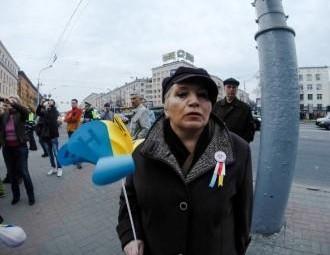Oleksandr Suchko:Civil society is divergent; but common vision of Ukraine’s future is most important
 photo by Evgeny Batura
photo by Evgeny Batura
Solidity can’t be a permanent feature of the civil society; it is living, which means it is diverse.
As the analysts and observers were saying, in result of bringing Ukraine to a crisis, Viktor Yanukovich succeeded in uniting the Ukrainian society as anyone else. EuroMaidan is a unique example of self-organization; however, now, when dozens of people got included in the struggle for the presidential post, certain skepticism in relation to the consolidation within the Ukrainian civil society has appeared.
In the talk with the EuroBelarus Information Service Oleksandr Suchko, Ukrainian National Coordinator of the Eastern Partnership Civil Society Forum assessed the processes which are taking place in Belarus’s neighboring country.
- The society is quite dynamic, which means it is heterogeneous. Society is alien to hierarchy and monolithic nature. The solidity was connected with the necessity to eliminate Viktor Yanukovich’s criminal regime. There are certain external threats, which also add to the solidity; but there are also other interests. Society per se and civil society are living their own lives. Some part of them is politically active. And political life today is connected with the presidential election. Election means competition, which is always tense. Thus, there is nothing surprising in all that.
- In the information war led by Russia “Ultras and radicals”, who are allegedly appointing ministers, dictating the terms to the authorities and basically representing the Kiev authorities themselves have already become a commonplace. And yet again, there are reports about the clashes of the “Right sector” with the new authorities and Maidan’s self-defence. How serious is all that?
- As to the radical groups, though they are few (much less than the Russian TV suggests) it is quite clear that no one can accept armed people at the streets. But now the radicals present no critical threat. Anarchic and chaotic period, which was typical after the change of the authorities, is coming to an end.
I see no harm in the diversity of opinions and interests of the Ukrainian civil society. Common vision of Ukraine’s future, the necessity for reforms in particular, is the main thing. It is of great importance that the civil groups which made themselves known in the last few months found certain consolidation and thus increased their influence.
-
03.01
-
07.10
-
22.09
-
17.08
-
12.08
-
30.09










































